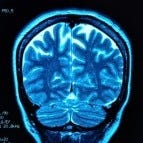Brain death equals death: says who?

Oh, my, what a predicament. Jahi McMath has been released from Oakland Hospital to the custody of the coroner and her family. She has been issued a death certificate. And she's being transferred to an undisclosed care center, where it is hoped she will begin receiving artificial nutrition. This is the height of both irony and tragedy. The comments by physicians and bioethicists in the CNN articles all hearken to the idea that there appears to be no error, she meets criteria for brain death and thus she's "legally dead." This misses the point. Her parents don't care if she's "legally dead." The legal definition does not comport with their own intuitions about death and her mother says as much. She will accept that her daughter is dead only when her heart stops beating. I can understand why a person may take this stance. Consider that, if you didn't know how to do a brain death examination, you would have no way of distinguishing her from any other comatose person whom we send to a care center on life support. Many people in the medical profession who are aware of this case appear to have misgivings because they perceive the family as being unrealistic about the girl's prognosis. Personally, I consider this case no different, no more troublesome than so many other cases that we deal with all the time in critical care medicine, where the family's expectations are markedly divergent from medical professionals' expectations. Is there more righteous indignation in this case because medical professionals feel that "the law has our back" in the case of brain death? Is it unsettling that Jahi's family could go up against the law and win? Does this represent a step backwards in the efforts of medical practitioners to educate the public about futile care? Has the legal standing of "brain death" become precarious or vulnerable to future challenges? Does legal backing and reinforcement serve as a surrogate for moral conviction and intestinal fortitude as regards prognostication and its communication in difficult or desperate cases? Finally, can the outcome of this case cast doubt on the validity and certainty of a diagnosis of brain death? In regard to that last issue, we used to think that patients in persistent vegetative state (PVS) (another diagnosis along the spectrum between consciousness and coma) had no perception of the outside world - until we put them in an fMRI machine and told them jokes. I was always taught that brain dead people all invariably die of complications within a few days or a week. Jahi has lived three weeks after the diagnosis of brain death already. I do not discount several possibilities that may explain her prolonged survival:
brain death leading to real death becomes a self-fulfilling prophecy if you never support brain dead patients for a prolonged time - thus our understanding of the prognosis of brain death is limited and potentially flawed
even if, in the past, brain death always lead to real death within a week or so, temporal changes in care could lead to changes in how long you can survive with "brain death"
the limited sample size of patients supported with brain death leads to confidence intervals around the survival estimates that are larger than we think, and outliers may surprise us
My devil's advocacy regarding this case has been misunderstood to signify that I have lost my own mind and am no longer a proponent of limitation of care in cases where care is of low, minuscule, or negligible value. Not so, by any means. But I am sympathetic to the notion that legal death based on a definition that was invented to enhance the supply of organs for transplantation may not comport with everyone's intuition about life and death; that individual value systems are sometimes markedly divergent and irreconcilable; and, most importantly, that if we are going to have any discussion that has a hope of understanding values that are divergent from ours, we need to open our minds. Here, there has been no open mind on the part of the medical establishment. It has been shouting "SHE'S DEAD, GODDAMNIT! ACCEPT IT!" Several questions I have not heard asked are: why did not the judge order life support to be withdrawn? Why did not the practitioners simply exercise their legal rights and withdraw life support after the declaration of brain death? What is the legal status of Jahi right now? In what way does the law protect her or not protect her as a person or as a corpse? Her existence appears to be legally ambiguous. Finally, if the proponents of "brain death equals real death" are so confident in their construct of brain death, which leads to real death within days or weeks, then why do they care so much about this case? If reality is as they conceive of it, Jahi will rest in peace (assuming she's not already resting in peace on the basis of brain death) very soon. Why all the fuss? I know only one thing for sure: in this Kafkaesque scene playing out before us, the emperor has no clothes. And I think you know what the emperor is. Scott Aberegg, M.D., M.P.H., blogs at Status Iatrogenicus and the Medical Evidence Blog.


